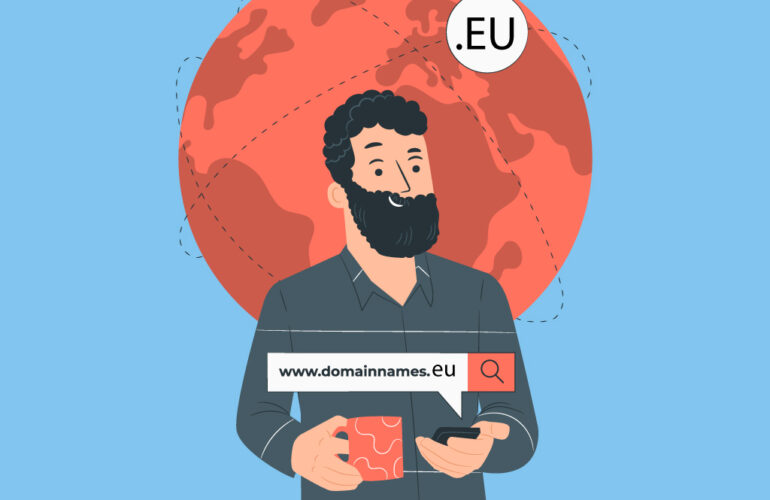We will try to answer in this article to the question: can you get back the domain name with ending .eu (by cancelling, transferring or making otherwise changes to it) if you have legitimate interests in the domain name. In general, the answer is yes.
However, if you want to get back the domain:
a) you must have prior rights, as they are described by the European Union legislator and
b) the domain has been registered by its holder without rights or legitimate interest in the name or has been registered or is being used in bad faith.
Prior rights
According to Article 10 (1) of Commission Regulation (EC) No 874/2004, ‘prior rights’ shall be understood to include, inter alia:
1) registered national and community trademarks or
2) geographical indications or designations of origin or
in as far as they are protected under national law in the Member-State where they are held:
3) unregistered trademarks or
4) trade names or
5) business identifiers or
6) company names or
7) family names or
8) distinctive titles of protected literary and artistic works.
In connection with the above, an extra-judicial or judicial procedure can be initiated, where the domain is identical or confusingly similar to your prior rights indicated above. However, it is important that these prior rights would be acquired or started to use by you earlier than by the domain holder.
Legitimate interests and bad faith
If the person wants to prove legitimate interests, it is necessary to demonstrate that:
1) prior to any notice of an alternative dispute resolution (ADR) procedure, the holder of a domain name has used the it or a name corresponding to the domain name in connection with the offering of goods or services or has made demonstrable preparation to do so;
2) the holder of a domain name, being an undertaking, organisation or natural person, has been commonly known by this name, even in the absence of a right recognised or established by national and/or Community law;
3) the holder of a domain name is making a legitimate and non-commercial or fair use of it, without intent to mislead consumers or harm the reputation of a name on which a right is recognised or established by national and/or Community law.
Whereas, a bad faith can be concluded where:
1) circumstances indicate that the domain name was registered or acquired primarily for the purpose of selling, renting, or otherwise transferring it to the holder of a name in respect of which a right is recognised or established by national and/or Community law or to a public body; or
2) the domain name has been registered in order to prevent the holder of such a name in respect of which a right is recognised or established by national and/or Community law, or a public body, from reflecting this name in a corresponding domain name; or
3) the domain name was registered primarily for the purpose of disrupting the professional activities of a competitor; or
4) the domain name was intentionally used to attract Internet users, for commercial gain, to the holder of a domain name website or other on-line location, by creating a likelihood of confusion with a name on which a right is recognised or established by national and/or Community law or a name of a public body, such likelihood arising as to the source, sponsorship, affiliation or endorsement of the website or location or of a product or service on the website or location of the holder of a domain name; or
5) the domain name registered is a personal name for which no demonstrable link exists between the domain name holder and the domain name registered.
Court of Justice of the European Union in case C-569/08 Internetportal und Marketing concluded that this list of bad faith circumstances is not limited, therefore a bad faith can be established by circumstances other than those listed above.
The person wanting to get back the domain should prove legitimate interests or bad faith conditions alternatively, meaning that it is sufficient to prove one or another but additionally, you should prove possessing the prior rights.
Extra-judicial or judicial procedure
For initiating a legal dispute against the domain holder two alternatives exist:
1) to start the alternative dispute resolution in the Czech Arbitration Court or
2) to bring a claim to the national court.
It is important to stress here that the results of Czech Arbitration Court shall be binding on the parties and the Registry unless appeal court proceedings are initiated within 30 calendar days of the notification of the result of the alternative dispute resolution procedure to the parties.
If you will have any additional questions, please do not hesitate to reach us by email or fill up the claim form.
